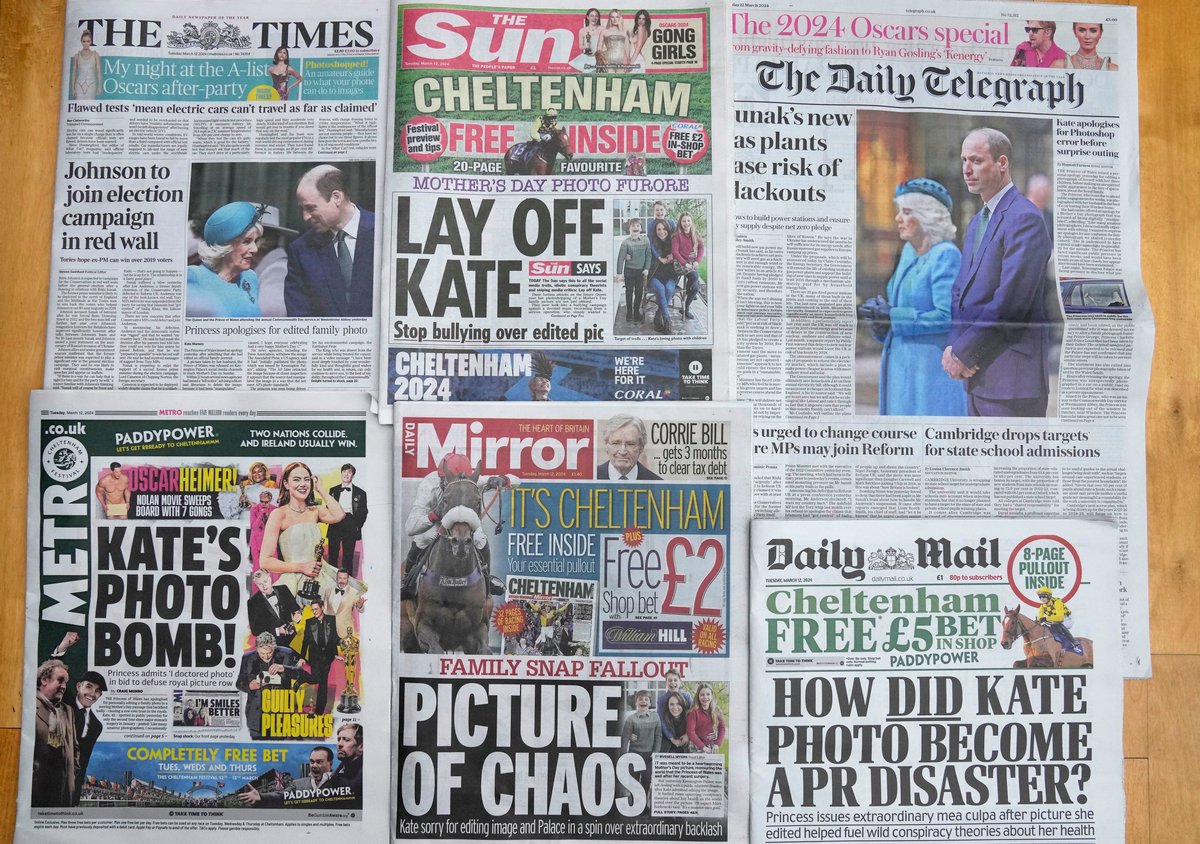But the era of deference gave way to the age of celebrity, and with it pressure on the royals to be open and likeable, glamorous but relatable — all while maintaining the dignity of a 1,000-year-old institution.At times, the royal-press relationship is openly hostile. William and his brother Prince Harry accuse the media of hounding their mother, Princess Diana, and blame paparazzi for her death. Diana was killed in a car crash in Paris in 1997 while she was being pursued by photographers.Harry, who moved to California with his wife Meghan in 2020, has made taming Britain’s tabloid press a personal mission. He has launched lawsuits against several newspaper publishers over alleged phone hacking and other unlawful intrusion.Harry has attacked the media directly in television interviews, a Netflix documentary series, and in his memoir, “Spare,” accusing the press of racist attitudes towards Meghan, who is biracial. He said he feared Meghan would suffer the same “feeding frenzy” as Diana had faced.Harry isn’t the first royal to try to speak directly to the world through TV interviews. During the breakdown of her marriage to the then-Prince Charles in the 1990s, Diana gave a BBC interview in which she said, “There were three of us in that marriage,” referring to Charles’ relationship with Camilla Parker-Bowles, who is now Queen Camilla.Prince Andrew tried the same tactic, disastrously, with a 2019 BBC interview to address his friendship with convicted pedophile Jeffrey Epstein and allegations of sexual abuse. Andrew appeared uncomfortable and evasive, and announced after the interview that he was “stepping back” from public duties. He has not returned.
Source link
Kate’s ‘photogate’ scandal shows that relations between royals and press rarely run smoothly





